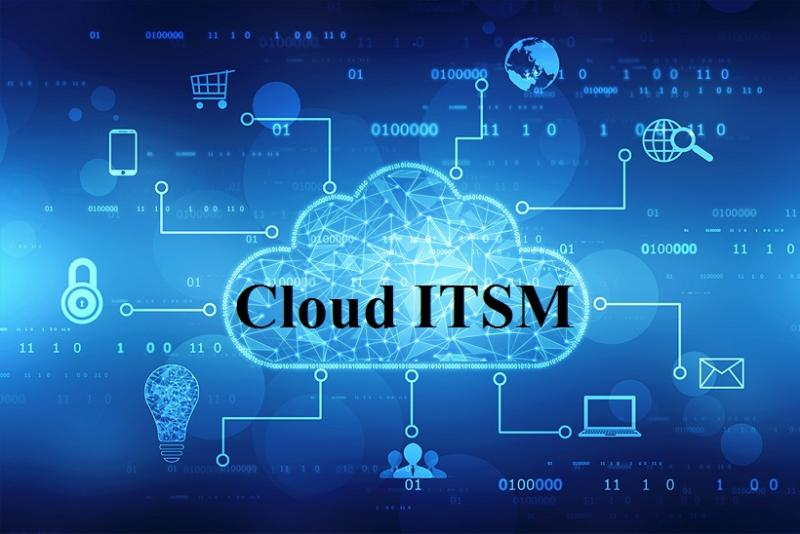IT Cloud Services
One of the major benefits of cloud services is that they are built on a native service-oriented foundation with elements constructed by service providers into simplified packaged offerings.
To avoid downtimes, unnecessary complexity, security vulnerabilities, and risk to your company’s IT operations carefully integrated and managed ITSM cloud services is essential. Put simply, your service provider’s ITSM processes become an extension of yours as soon as you take advantage of cloud services.
According to the National Institute of Standards and Technology (NIST), there are five essential characteristics of a cloud service. These are:

On-demand self-service
This is where a user can unilaterally provision computing capabilities, like server time and network storage, automatically without needing human interaction with each service provider as needed.
Broad network access
Capabilities should be accessible through mechanisms that encourage use of mobile phones, tablets, laptops, and workstations.
Resource pooling
The provider’s computing resources are accumulated to serve multiple consumers through a multi-tenant model, with various physical and virtual resources that are dynamically assigned according to consumer demand.
There is a sense of location independence wherein the customer has no general control or knowledge over the specific location of the provided resources.
Rapid elasticity
Capabilities should be provisioned and released flexibly or even automatically, to scale up or down according to demand. To the consumer, the capabilities available for provisioning typically appear to be unlimited and can be allocated in any quantity at any time.
Measured service
This is where you can monitor, control, and report resource usage which provides transparency for both the provider and user of the service used.
Core processes in ITSM cloud services
Here are some of the main processes involved in ITSM cloud services:
- Service Catalogue Management
- Service Level Management
- Asset and License Management
- Availability Management
- Capacity Management
- Change Management
- Configuration Management
- Event Management
- Incident Management
- Problem Management
- Supplier Management
- Release Management
- Request Fulfillment
Today, cloud services are totally adopted in every industry, making ITSM cloud services a vital component of every IT department. Here's what to expect when ITSM is fully integrated with cloud services:
Abstraction of configuration details
With ITSM cloud services, you are utilizing a set of components that are designed and provisioned to work as a unit so you can expect to be given more than "a box of parts". One of the main advantages this opportunity offers is that you don’t need to manage—or even know about—the various components, especially if the service is well-defined. In short, you're free to treat the service as a "black box" and just run the interfaces.
Availability and service performance through clearly-defined SLAs
There are ITSM cloud services that are re-offered to end-users for utilization or combined with other components as part of a whole new package. In both cases, your IT department is responsible for providing SLAs and the associated service assurances to end-users or consumers of your offerings. You need the SLAs with service providers to be clearly well-defined and consistently achieved in order to do this effectively.
Consistent change management processes
ITSM cloud services, together with their technological components, will definitely evolve. This is the reason why it's vital that cloud service providers have strong change management processes in place to reduce service disturbances and communicate with you about any potential impacts, allowing you to set expectations with end-users accordingly.
Responsiveness to issues and service requests
As an extension of your internal ITSM processes, you will frequently pass service requests and service issues to the cloud service provider for interpretation and resolution. That's why it's important to have a responsive help desk with agents available when your company needs to engage with cloud service providers, like time-zone issues. This is also essential to satisfying end-user SLAs for provisioning and incident management.
Alliance in problem management
No matter how much a company strengthens its IT department, keep in mind that services will fail at some point in the operation. When this happens, you will need to work closely with cloud service providers to share information, collaboratively troubleshoot issues and create remediation steps. Put simply, problem management is a team sport when it comes to ITSM cloud services.
Final Thoughts
Integrating these core ITSM activities with cloud service providers will allow you to effectively use and incorporate their services into the offerings that your business needs.
Confidence in your suppliers will ultimately give you the confidence to extend a fortified set of service management processes to your company’s stakeholders. Cloud services merged with integrated ITSM processes will provide you with access to scalable and cost-effective technology options that your company may take advantage of and benefit from in the long run. Contact ITarian for your ITSM needs!